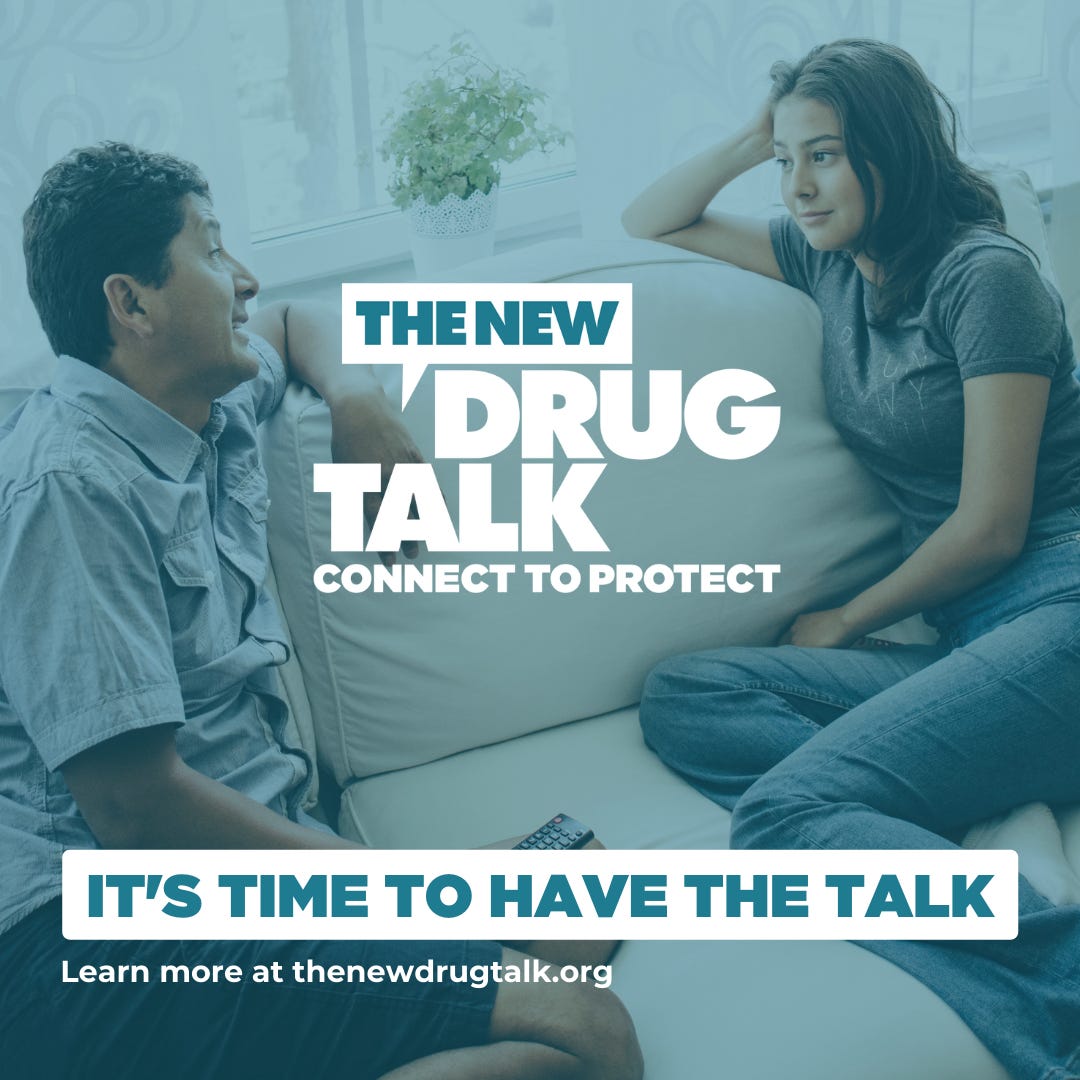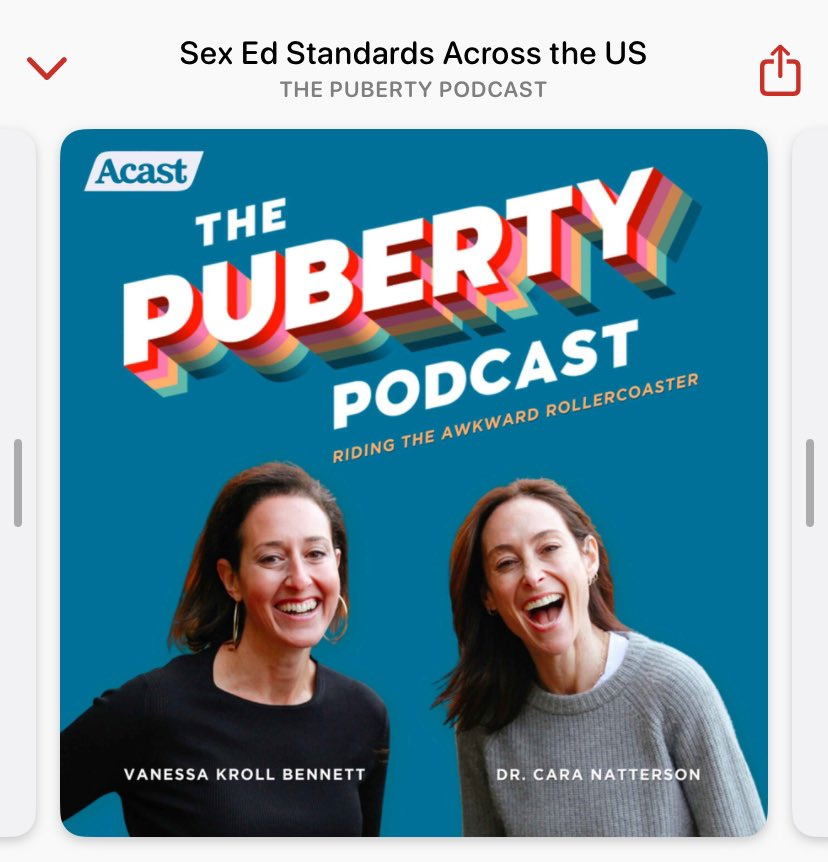We Need to Talk About Fentanyl. Here's How.
The White House says we need to get a lot more serious about preventing overdoses. PLUS: What happens when a school bans cell phones?
Hi folks - I’m back from a trip to see my family in Wisconsin and present at the Wisconsin Health and Physical Education Conference. I was thrilled to meet so many caring, committed educators — and to see some beautiful fall color!
Spotlight
We Need To Talk About Fentanyl
Earlier this week, the White House sent a letter to every school in the country, sounding the alarm about fentanyl:
“Fentanyl is a synthetic opioid that is so potent even a tiny amount can be fatal. As you have seen in your schools and communities, the rise of illicit fentanyl and its trafficking via social media is having a disproportionate impact on our children. Overdose deaths among adolescents doubled from 2019 to 2020 and continue to rise, even though youth rates of drug use have remained stagnant. That’s because a teenager today can log onto social media with a smartphone and buy what they think is an opioid pain medicine or a prescription stimulant to help them study—and instead die from one pill that actually has fentanyl in it. Just one pill. And data show that two-thirds of adolescent drug poisoning deaths occurred with a potential bystander nearby, but naloxone was often not administered.”
The letter said every school should carry naloxone, which can save lives by reversing an opioid overdose. It’s important, and I completely agree that it should be available at schools.
Naloxone can’t be the only solution to this issue, however.
We need talking to our youth frankly and directly about fentanyl, both at home and in schools. Luckily, there are some great new tools available to help. Let’s take a look at some of them.
TheNewDrugTalk.org
This recently-launched site is packed with information, videos, and suggestions for how to talk about Fentanyl with youth. The “Start The Conversation” section is divided into three sections:
What To Know provides answers to questions like:
Why Is Fentanyl Found In So Many Drugs Now?
What Leads Youth to Try Drugs?
Why Is It Important For Families To Talk About Substance Use?What To Say digs into questions like:
How Can I Make These Conversations Feel Safe?
What Do Youth Need to Know About Fake Pills?What's The Best Opening Line?
What to Do goes futher, answering questions like:
How Can Fentanyl Test Strips Help Prevent Overdoses?
How Can I Understand Harm Reduction Strategies?
After We Talk, What’s The Next Step?
If a parent or caregiver reads the information on in those sections, they will be very ready to start having these conversations.
The site also has some powerful videos that help explain just how much the drug landscape has changed, and why so many young people are dying of overdoses now.
As one of the members of the site’s Content Advisory Board, I’ve been able to help develop and review its content, and have leaned on its sample messages to talk about fentanyl with my own teeens. I so appreciate having clear, understandable messages that are based in connection, not fear or shame.
SongForCharlie.org
For materials to share directly with youth, I recommend turning to TheNewDrugTalk’s sister site, Song For Charlie. It provides videos, social media posts, and materials designed to reach teens. Many of them emphasize how risky it is for young people to take prescription pills that aren’t prescribed for them, because they are often fake and can contain lethal amounts of fentanyl.
The Real Deal on Fentanyl
This site, created by the Ad Council, includes lot of clear, effective messages about how to reduce the risk of overdose and how to help friends struggling with substance use. They also have recorded “Substitute Dealer” lessons, where former drug dealers step in as substitute teachers to explain the economics of drug dealing and how fentanyl gets into the drug supply.
Connect Effect
This new page from Colorado has easy-to-use tips for “How to Talk About the Risks” with teens, including graphics with talking points that you can save right to your phone. They emphasize the importance of a caring social network for preventing overdoses.
Safety First
Meant for high school classrooms, Sanford University’s free Safety First curriculum provides 13 excellent evidence-based lessons on substance use, including one specifically on opioids and fentanyl. In my opinion, it’s the best drug education curriculum available right now.
Wellness
What Can Couples Learn From Examining Their Fights?
Young people learn a lot about by watching us, the adults closest to them. In a new eight-part online course, “Turing Conflict Into Connection,” Esther Perel promises to help “Uncover why you keep having the same fights over and over again. Learn how to break free from habitual patterns and responses. Find peace and reconciliation even when you disagree.”
In this interview about the course in The Cut, Perel talks about what’s underneath our fighting, how to de-escalate conflict, and the relationship between fighting and make-up sex. Perhaps the most surprising quote? “In no way do I want you to stop fighting!”
New from Amaze.org: Talking To A Partner about STIs
Amaze.org has a TON of videos about puberty, healthy relationships, and sexuality, all created with young people in mind. Here’s their latest:
“When it comes to talking to your partner about sexually transmitted infections (STIs), it's all about creating a safe and open environment. This talk should take place before engaging in sexual activity. You can also discuss the idea of going for STI tests together. Always remember, it's about respecting each other's health and well-being.”
Keep On Learning
What’s The State of Sex Education in the U.S.?
There’s no federally mandated standard for sex education – in fact, there aren’t consistently enforced standards across states or even local school districts. Jaclyn Friedman, founder of Educate US, joins this episode of The Puberty Podcast to un-complicate this web of loose and widely-varying recommendations, ultimately explaining where parents and educators alike go from here.
Over-the-Counter Birth Control Pills Are Coming Soon. Be Ready.
Did you know that some birth control pills will soon be available without a prescription? Shape America and Advocates for Youth came together in an October webinar to try to get ahead of the change. If you missed it live, you can now watch the recording. The presenters summarize why it's safe for the pill to be available over-the-counter even for teens; describe how and where the over-the-counter pill can be accessed without age restrictions; and review critical information necessary to teach adolescents about this new development.
News
This Florida School District Banned Cellphones. Here’s What Happened.(New York Times)
In May, Florida passed a law requiring public school districts to impose rules barring student cellphone use during class time. This fall, Orange County Public Schools — which includes Timber Creek High — went even further, barring students from using cellphones during the entire school day. READ MORE

The Trap of the Overprotected Childhood (New York Times)
from 1981 to 1997, American kids’ unstructured playtime went down 25 percent. In the ’70s, nearly half of students in kindergarten through eighth grades walked or biked to school; today, only about one-tenth do. In a 2004 survey, 70 percent of mothers said they played outside every day as kids, but only about a third of their kids did. READ MORE









